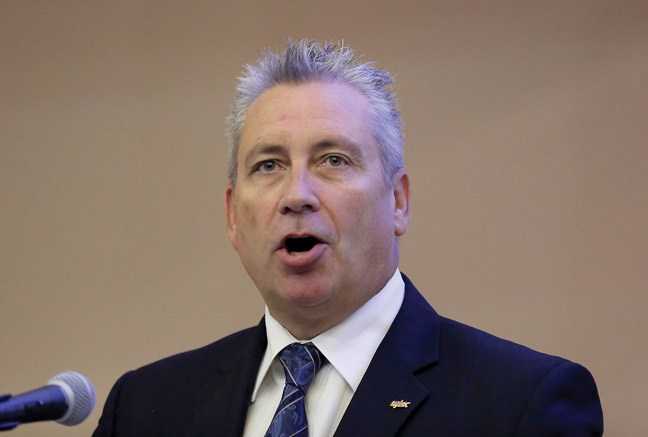UNBC's senate passed a non-confidence motion in the leadership of former university president Daniel Weeks on Wednesday.
The notice of motions was brought forward by Prof. Peter Jackson at the January meeting of the university senate, which governs academic issues at UNBC. The week after the notice of motion was brought forward, Weeks went on medical leave.
Then in February, Weeks resigned, ending his second term in office early.
"There was a group of faculty senators, primarily, as well as student senators who discussed bringing this motion forward," Jackson said. "I kind of drew the short straw... and brought the motion forward. The motion has to be made by one senator."
Jackson said he wouldn't publicly discuss the case for the motion, because it wasn't presented to the senate and Weeks was not given an opportunity to respond. However, the motion came after a three-week strike by UNBC faculty in November. The faculty association and UNBC administration agreed to take the labour dispute to arbitration.
Jackson said he and the other senators who authored the motion discussed if they should continue with the motion after Weeks' departure. They were encouraged by colleagues to continue with it as "a point to move forward" from, he said.
"We wanted to set the record straight," Jackson said.
After the non-confidence motion passed, they put forward a motion to seek a joint meeting with the university's board of governors to discuss the issue of leadership at the university, he said. The board of governors is responsible for hiring the university president and is the body which governs the administrative side of running UNBC.
"Obviously the president is the figurehead of the university. (But) we also have quite a few senior positions of the administration which are empty as well," Jackson said. "It's not just about the president, but a whole package of leaders."
He and the group of senators hope to see an open selection process for the new president, which would allow faculty, students and other stakeholders to meet and provide feedback to the board before they make their final selection.
"Sometimes the process is closed. The rationale that is usually given is that you won't get good candidates if you have an open process, because some of them may work at other universities and don't want their employers to know they're looking elsewhere," Jackson said.
Both open and closed leadership selection processes are used by universities across Canada, he said, and open processes have been successful elsewhere.
Weeks became UNBC president in July 2014 and was reappointed for a second term in August 2018.



